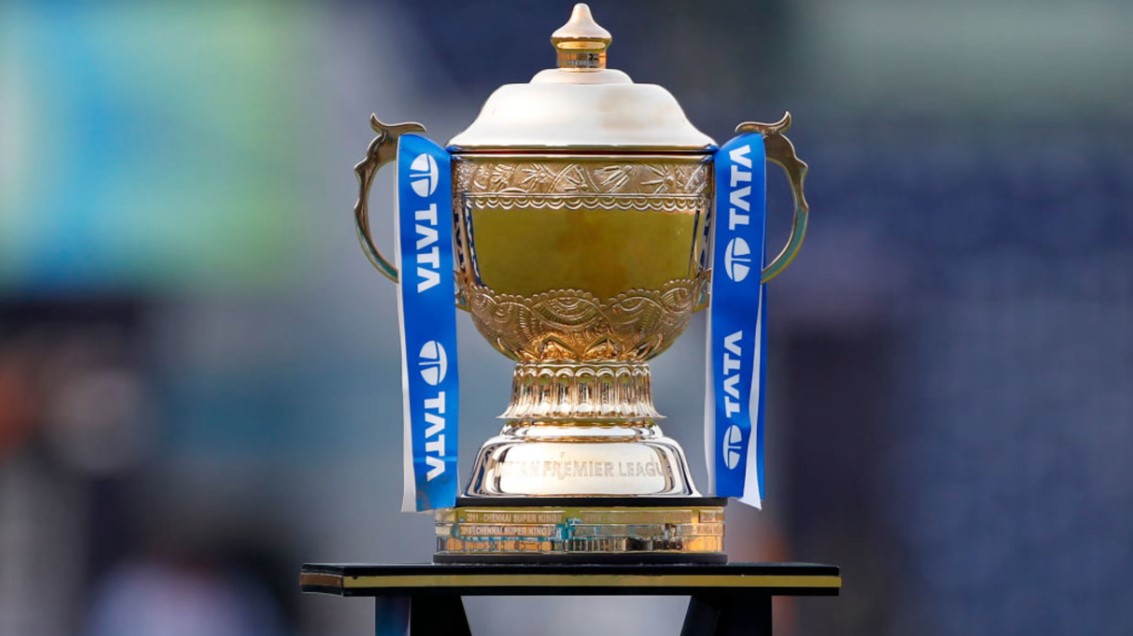The Indian Premier League (IPL) is the biggest and most popular cricket tournament in the world. People from many countries watch it, and it makes a lot of money. Fans love it very much. But even though it is very strong and famous, sometimes it had to stop or change. Because of big problems like fights between countries or the COVID-19 pandemic, the IPL was not always smooth. In this story, we will look at all the times the IPL had to stop, move to another place, or face big problems since it started in 2008.
Want to Win Real Cash with Cricket Knowledge?
Join Parimatch India and get a ₹20,000 welcome bonus! Bet on IPL, Test, ODI & more.
Start Betting NowIPL 2025 Suspension: India-Pakistan Conflict Forces Abrupt Halt
On May 9, 2025, the Board of Control for Cricket in India (BCCI) made the unprecedented decision to indefinitely suspend the IPL amid escalating military tensions with Pakistan. The final trigger was a mid-match abandonment between Punjab Kings and Delhi Capitals at Dharamsala due to air raid alerts in the region. With only 16 matches remaining, the tournament stood poised for a dramatic conclusion, with Gujarat Titans leading the table, closely followed by Royal Challengers Bengaluru, Punjab Kings, and Mumbai Indians.
The cause of this suspension traces back to Operation Sindoor, where India launched precision missile strikes targeting terror hubs across Pakistan and Pakistan Occupied Jammu and Kashmir (PoJK). These retaliatory strikes were in response to the Pahalgam terror attack on April 22, which killed 26 civilians, predominantly tourists. As military tensions escalated, the BCCI prioritized national sentiment over cricketing entertainment.
A senior BCCI executive was quoted: “It does not look nice that cricket goes on while the country is at war.” Although initial reports hinted at a temporary week-long delay, the situation's gravity led to a full indefinite suspension.
IPL 2021: The COVID-19 Mid-Season Catastrophe
The 2021 IPL season was cruising through its schedule until May 3, when a deadly second wave of COVID-19 swept across India. Bio-bubbles—intended to shield players from the virus—were breached, leading to positive cases among both players and staff.
Four cricketers—Varun Chakravarthy, Sandeep Warrier, Amit Mishra, and Wriddhiman Saha—along with Chennai Super Kings’ coach L. Balaji and multiple support staff, tested positive in rapid succession. The BCCI promptly suspended the tournament, citing concerns over player safety and ethical responsibility amid a national crisis.
At the time of suspension, 29 of 60 matches had been played. The IPL resumed four months later in the United Arab Emirates, which served as a secure bio-bubble hub, successfully concluding the tournament away from the COVID-ravaged Indian landscape.
IPL 2020: Entire Season Suspended Before Start
No moment in IPL history compares to the complete shutdown of the 2020 season before a single ball could be bowled. As COVID-19 was declared a global pandemic, India went into strict lockdowns, rendering mass gatherings and sporting events impossible.
The BCCI’s official statement highlighted their priorities: “The health and safety of the nation and everyone involved in our great sport remains our top priority.” This decision impacted not only the sporting fraternity but also led to massive financial ramifications.
Economic Impact of the 2020 IPL Suspension:
- Star India, the official broadcaster, reportedly lost Rs 3000 crore in potential ad revenues.
- IPL franchises collectively lost Rs 600 crore in sponsorships.
- Event management, travel, and hospitality sectors, closely tied to IPL logistics, faced significant revenue drops.
Despite the losses, the decision was lauded globally as a necessary move during an unprecedented health crisis.
IPL 2014: Election Season Forces Partial Relocation
The 2014 Indian Premier League had to navigate around the Indian general elections, a time when government resources are focused on national polling duties. With concerns about ensuring adequate security arrangements, the BCCI decided to host the first half of the tournament in the United Arab Emirates (UAE).
From April 16 to April 30, matches were played in Dubai, Abu Dhabi, and Sharjah, after which the tournament returned to India. Though not a full suspension, this disruption required intricate logistical recalibration and marked the second time the IPL was forced offshore.
IPL 2009: Full Season Shifted to South Africa
The 2009 edition of the IPL witnessed its entire tournament moved to South Africa, again due to conflict with Indian general elections. The Indian government expressed inability to provide security for both events simultaneously.
Rather than canceling or postponing, the BCCI acted decisively by shifting all fixtures to Durban, Cape Town, Johannesburg, and other South African cities. Despite the relocation, the season retained its competitive edge, with Deccan Chargers emerging as champions under Adam Gilchrist.
The move to South Africa was hailed as a logistical masterclass, demonstrating the IPL's global adaptability and the BCCI’s organizational prowess.
The Ripple Effects of IPL Suspensions
Every IPL suspension or relocation leaves a lasting economic, operational, and emotional impact.
Broadcasting and Advertising Revenue Losses
The biggest casualties during suspensions are media houses and advertisers. For instance, the 2025 IPL suspension jeopardizes hundreds of crores invested by advertisers in slots booked during playoff season. The Disney-Reliance JV, current holders of broadcasting rights, faces potential contract renegotiations and refunds.
Franchise and Player Revenues
- Franchises lose match-day revenues, sponsorship payouts, and merchandise sales.
- Players, particularly uncapped Indian players, suffer income instability and lost opportunities to showcase talent.
Fan Engagement and Brand Damage
Every suspension disrupts fan engagement cycles. Ticket holders, fantasy league players, sponsors, and global audiences feel the ripple effects. It also dents the IPL’s brand value, which was pegged at $10.7 billion in 2023.
2025 Season: Teams Caught in the Crossfire
At the time of the 2025 suspension, playoff qualification was heating up. The abandoned match saw Punjab Kings at 122/1 in 10.1 overs—on the brink of sealing their playoff berth. With Gujarat Titans, RCB, and Mumbai Indians also in strong positions, fans and analysts were poised for a thrilling finish.
This disruption means:
- Possible revision of playoff formats if the season resumes.
- Unresolved standings and award controversies.
- Foreign player availability issues if the resumption happens late.
Conclusion: IPL's Enduring Spirit Amid Chaos
In its 17-year journey, the Indian Premier League has seen two complete mid-season suspensions (2021 and 2025), one pre-season suspension (2020), and two major relocations (2009 and 2014). Each event tested the IPL’s adaptability, stakeholder coordination, and commercial resilience.
Despite these trials, the IPL consistently finds ways to restructure, revive, and resume, proving its unmatched significance in the cricketing and business world. As we await clarity on the resumption of IPL 2025, history tells us that the league will return stronger, more innovative, and more captivating than ever.

 All Live
All Live
 Favorites
Favorites
 Top players
Top players
 Promotions
Promotions
 Cricket
Cricket
 Kabaddi
Kabaddi
 Football
Football
 Badminton
Badminton
 Basketball
Basketball
 Tennis
Tennis

